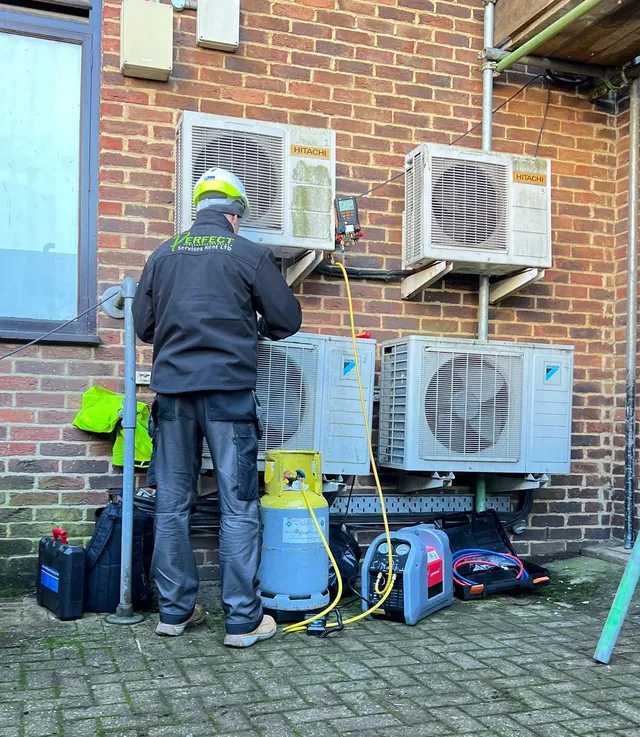Best Practices for HVAC System Decommissioning in 2025
Hey there, HVAC pros! When it’s time to retire an old HVAC system, there’s more to consider than just unplugging and hauling it away. Proper decommissioning is crucial not only for compliance but also for environmental responsibility. Stick with us as we explore the best practices for HVAC system decommissioning, ensuring you stay on top of regulations and protect our planet.
Understanding HVAC System Decommissioning
On average, HVAC systems are decommissioned after about 15-20 years of service. But the process doesn’t stop at simply removing the unit. It involves careful planning, regulatory compliance, and environmental considerations.
Regulatory Compliance and Safety
In the U.S., decommissioning an HVAC system requires adherence to strict regulations from the EPA and DOE. Here’s what you need to keep in mind:
- Use certified recovery equipment and technicians for refrigerant handling to prevent environmental contamination.
- Maintain detailed records for systems containing 5-50 lbs of refrigerant.
- Follow stricter leak detection and repair requirements for units with ≥50 lbs of HFC refrigerant.
- Ensure used refrigerants are reclaimed by a certified technician for reuse.
Environmental Impact and Best Practices
Recent EPA regulations on refrigerant management aim to significantly reduce greenhouse gas emissions. Here’s how you can contribute:
- Avoid intentional refrigerant release by ensuring proper evacuation and recovery with certified technician oversight.
- Maintain compliance documentation throughout the decommissioning process.
- Consider using advanced tools like the Appion 5/16 inch valve core tool for efficient refrigerant handling.
Replacement Considerations
When planning for a system replacement, consider resizing and upgrading to improve future efficiency and sustainability. This step not only meets current needs but also aligns with environmentally friendly HVAC decommissioning practices.
Consequence of Non-Compliance
Ignoring decommissioning protocols can lead to hefty fines and environmental damage. It’s crucial to follow HVAC system decommissioning regulations to avoid these consequences.
FAQs about HVAC System Decommissioning
Q1: What are the HVAC system decommissioning best practices?
Ensure certified technicians handle refrigerant recovery, maintain detailed documentation, and plan decommissioning with qualified professionals.
Q2: How do I create an HVAC decommissioning checklist?
Include regulations compliance, equipment recovery procedures, and environmental impact assessments in your checklist.
Q3: What are the steps for proper disposal of HVAC systems?
Follow EPA guidelines, reclaim refrigerants, and ensure safe removal and disposal of system components.
Q4: Why is safe HVAC system removal important?
Safe removal protects the environment, complies with regulations, and prevents accidents during the decommissioning process.
Q5: What are the HVAC system retirement guidelines?
Adhere to the lifecycle of 15-20 years, plan for system replacement, and follow decommissioning protocols strictly.
In conclusion, decommissioning old HVAC units is a significant responsibility. By following these HVAC system shutdown processes, you not only comply with regulations but also contribute to a greener planet. Ready to take action? Ensure your next HVAC system decommissioning is environmentally friendly and compliant!
Ready to upgrade your HVAC system? Contact us today to explore efficient and sustainable options!


